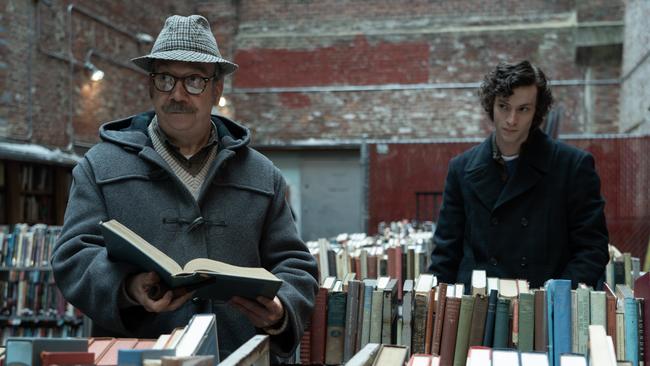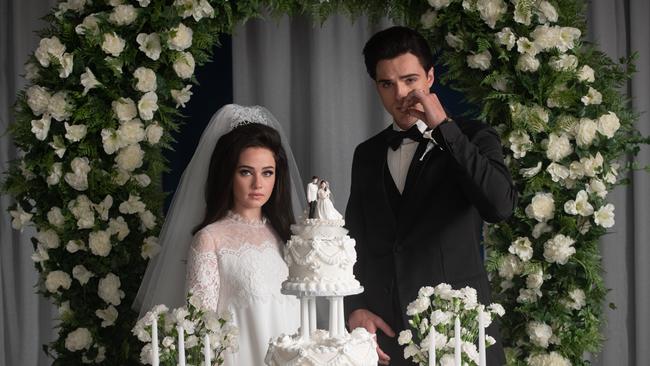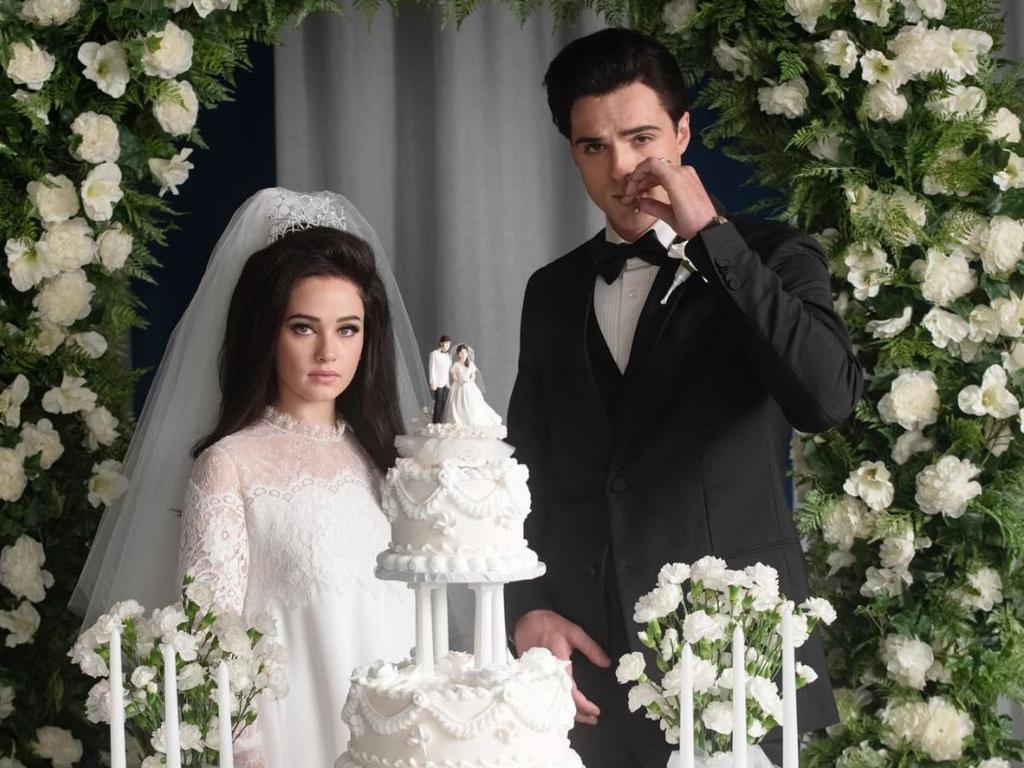Schooled by a story that hurts and warms
The final 45 minutes of this film are worth four stars. The three leads are brilliant. Paul Giamatti and Da’Vine Joy Randolph each won a Golden Globe on January 8. Dominic Sessa is an actor to watch.

The Holdovers (M)
131 minutes
In cinemas
★★★½
The comedy-drama The Holdovers reunites director Alexander Payne and actor Paul Giamatti from the much-loved wine country road trip movie Sideways (2004).
This is a better film, I think, though my favourite from the Payne playlist is another road trip, Nebraska from 2013, starring the remarkable Bruce Dern.
The setting is 1970-71 but it’s not the ’70s the Australian rock band Skyhooks sang about. It’s more like 1771, a few decades before the elite New England boys’ boarding school at its centre was founded.
Paul Hunham (Giamatti), an old boy, teaches ancient civilisations. He’s about to start on the Peloponnesian War and he’s on both sides: embracing the Athenian aesthetic and the Spartan lifestyle.
He is single – “This is not exactly a face forged for romance,’’ he notes in reference to his wall eye – and rarely leaves campus. When a student asks him if he’s a virgin, his answer is surprising.
The opening shot pans from his bathroom – foot powder and haemorrhoid cream – to him at his desk, smoking a pipe and marking papers, a bottle of bourbon within reach. “Lazy, vulgar, rancid little philistines,” he mutters as he delivers Cs, Ds and Fs. He thinks the students are entitled, “rich and dumb” as another character puts it, unlike himself, a scholarship boy.
The “holdovers” are five boys stuck at the school over the Christmas break. Paul has to look after them. “At least pretend to be a human being please. It’s Christmas,’’ the headmaster tells him.
The only other person on campus is the cook, Mary (Da’Vine Joy Randolph), who is grieving the death of her son, a former student, in the Vietnam War.
This set-up is full of sharp, dryly funny dialogue. The scriptwriter, David Hemingson, has television comedies such as Just Shoot Me! On his CV.
This all suggests a story about a curmudgeonly teacher forced to babysit five “little shits” abandoned at Christmas. However, a series of events means it becomes about three people – the teacher, the cook and a bright, arrogant, anxious 15-year student named Angus (newcomer Dominic Sessa, who is outstanding) – and a film of far greater emotional depth as a result.
It’s about three people dealing with their own private losses. Forced to come together, they slowly reveal more about themselves, decide to trust each other and form a bond. “Entre nous” becomes a pact between teacher and student.
The final 45 minutes of this film are worth four stars. What happens hurts and warms the heart. The three leads are brilliant. Giamatti and Randolph each won a Golden Globe on January 8. Sessa is an actor to watch.
“Our one true purpose,” Paul tells the headmaster when he’s being roused on for failing a senator’s son, “is to produce men of good character”. That’s a lesson that he, too, realises he still needs to learn as this movie develops into an unlikely but beautiful buddy story.
Tale of life with Elvis strikes haunting note
Priscilla (M)
110 minutes
In cinemas from January 17
★★★★
How do you make a movie about Elvis Presley in which the king of rock’n’roll is not the central character? You hire Sofia Coppola as writer-director and cast emerging stars Cailee Spaeny and Australia’s Jacob Elordi.

The Elvis (a mesmerising Elordi) in Priscilla is different to the one in Baz Luhrmann’s Elvis (2022), for which Austin Butler received a deserved Oscar nomination in the title role.
This is the Elvis who psychologically abuses and physically threatens his first and only wife, Priscilla (a superb Spaeny). The Elvis who pops pills day and night and encourages his young girlfriend then wife to do the same. The Elvis mired in grief over the death of his mother.
This is the Elvis who is a prisoner of his father Vernon (Tim Post) and manager Tom Parker (heard of but not seen in this film) and in turn incarcerates his “baby” as he calls Priscilla, which is not far wrong when they first meet.
“You want to go with strangers to Elvis Presley’s house?’’ Ann Beaulieu (Dagmara Dominczyk) asks her 14-year-old daughter. It’s the right question but the emphasis on “strangers” is misplaced. Priscilla does go to the house in Memphis, Tennessee, and becomes an inmate of Graceland.
“He’s not like you imagined,’’ she tells her mum soon after she and Elvis, who is a decade older, start dating in 1959, while he is doing military service in Berlin. As she will come to know, he is not like anyone imagined.
Back home, Elvis controls how she looks, from choice of dress to make-up and hairstyle, what she does and who she sees. She spends most of her time in the white-carpeted Graceland while he is off making movies and recording songs, with the gossip magazines linking him to co-stars such as Nancy Sinatra and Ann Margret.
“You just keep your little arse there and keep the home fires burning,’’ he tells her by telephone. Her response signals the start of a shift in her thinking, and hints at their tepid love life. “The fire’s getting low so you better get here to start the fire.”
This film is all about colour, textures and interiors. Credit to costume designer Stacey Battat, a regular collaborator with the director, set designer Tamara Deverell and cinematographer Philippe Le Sourd. There’s a deliberate superficiality in the life Elvis lives and the one Priscilla is made to live.
He complains he isn’t sent any decent songs and doesn’t land the roles that Marlon Brando and James Dean do, but when his father or Colonel Parker tell him what to do, he does it.
Unlike Luhrmann’s film, there is almost no Elvis music. We see him performing once, and only from behind. We hear him sing once, and it’s on a TV show, with him watching it in his living room, surrounded by his male entourage.
The music is arranged by the director’s indie rock husband Thomas Mars and his band Phoenix. There are original songs by the musical duo Sons of Raphael, along with some well-placed oldies from Elvis’s era.
When Elvis asks teenage Priscilla who she listens to, she says: “Bobby Darin, Fabian … and you.” When later, as his wife, she agrees with his criticism of a song he has been sent, his response is violent.
The tall, handsome Elordi is impossible to look away from in every scene. In one of the best moments, he waits outside a Catholic school during Priscilla’s graduation ceremony, not wanting to distract attention by being inside. When she emerges, mortarboard hat in hand, she sees he is surrounded by nuns doing the 1960s version of selfies.
Brisbane-born Elordi is the next big thing from Down Under. He’s brilliant in Saltburn and will star in an upcoming TV adaptation of Richard Flangan’s Booker Prize-winning 2013 novel The Narrow Road To The Deep North.
Under Coppola’s artful direction, he makes room for his brilliant co-star, as this is the Elvis story from Priscilla’s point of view. The main source material is her 1985 memoir Elvis And Me, and she is an executive producer.
It’s the story of a gender power imbalance and as such a continuation of a theme the director has explored in Lost In Translation (2003) and Marie Antoinette (2006). In interviews, Coppola directly compares Priscilla and the pre-Revolution French queen as women living in “such an amplified world”.
Spaeny’s previous work includes the 2018 film On The Basis Of Sex and the 2021 television series The Mare Of Easttown. Here she is Priscilla from the age of 14 to 27 and she nails the transformation from girl to woman.
The look on her 14-year-old face when Elvis shows an interest in her is perfect. It’s a shy, secret, semi-smile. By the end, that look has changed dramatically. The perfectly-placed final song we hear is I Will Always Love You, written and performed by Dolly Parton.
This movie has the potential to send viewers down a lot of online rabbit holes. It asks questions about Elvis’s psychology and sexuality.
Barbara Walters’s 1985 interview with Priscilla is worth watching. She talks about she and Elvis remaining in his bedroom for weeks, with food being left at the door, as is seen in the film, like it was a “cocoon” or “womb”. You can find it on YouTube.
The one I strongly recommend is Malcolm Gladwell’s podcast, Revisionist History, series three, episode 10, Analysis, Parapraxis, Elvis. It is fascinating and touches on some of the themes Coppola explores in this remarkable movie.



To join the conversation, please log in. Don't have an account? Register
Join the conversation, you are commenting as Logout